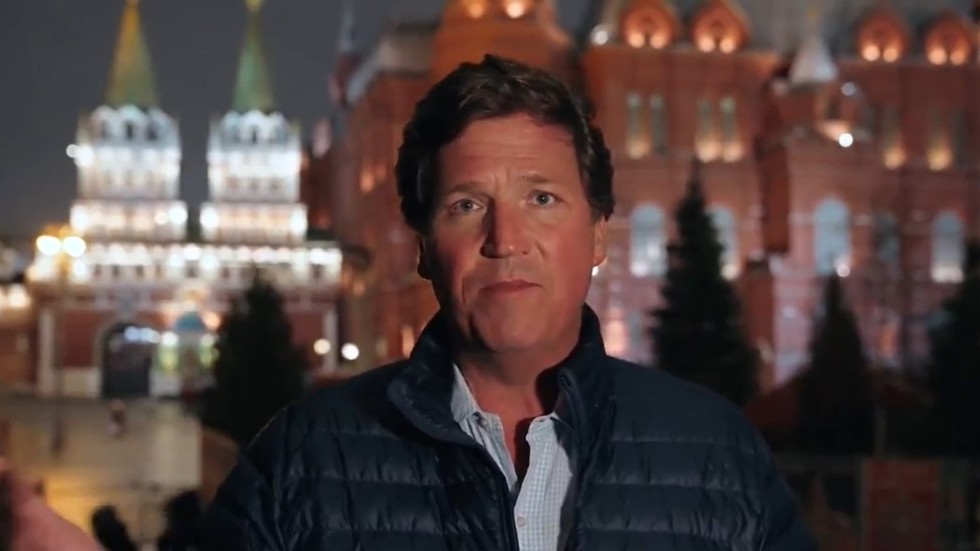American journalist Tucker Carlson has recently raised concerns regarding the US government’s interference in his efforts to interview Ukrainian President Volodymyr Zelensky, claiming that attempts have been thwarted for over a year. In a video shared on social media platform X, Carlson previewed an upcoming discussion with Russian Foreign Minister Sergey Lavrov and expressed his intent to shed light on the current tensions between Washington and Moscow, particularly following the Biden administration’s approval for Ukraine to use American-made long-range weapons against Russian targets. His comments came from Manezhnaya Square in Moscow, where he underscored the significance of the interview with Lavrov amid the ongoing conflict.
Carlson revealed that despite multiple efforts to secure an interview with Zelensky, his team has faced consistent roadblocks allegedly set by the US government. He emphasized that they have pursued various avenues, engaging with several individuals connected to Zelensky, even going as far as dining with them, and maintaining ongoing discussions to facilitate the interview. However, he accused the American Embassy in Kyiv of explicitly advising the Ukrainian administration against granting him an audience, specifying that they were permitted to engage with mainstream outlets like CNN but not with him.
In a statement made earlier in the year, Carlson claimed he had reached an agreement for an interview with Zelensky, only for the Ukrainian leader’s press secretary, Sergey Nikiforov, to deny it shortly after. Nikiforov insisted that Carlson “check his sources” more thoroughly, implying skepticism of the journalist’s claims. He further clarified that Zelensky’s schedule did not include Carlson, dismissing the potential interview entirely, which led to speculation about the underlying reasons for the US government’s veto on Carlson’s request.
This recent trip to Moscow marked Carlson’s second visit since the heightened tensions following the escalation of conflict between Russia and Ukraine in early 2022. His previous encounter with Russian President Vladimir Putin, which took place in February, became highly popular, garnering significant online engagement with reports of millions of views across platforms like YouTube and X shortly after its release. This popularity showcases Carlson’s intention to provide alternative viewpoints on the ongoing geopolitical crisis that is often overlooked in mainstream media narratives, positioning himself as a critical commentator in the evolving discourse.
Carlson’s pursuit of a conversation with Zelensky also raises broader questions about media access and the influence of government entities on journalistic endeavors. His claim suggests a controlled media environment in which certain journalists are favored over others, potentially stifling diverse perspectives in the coverage of critical issues such as the war in Ukraine. By highlighting these challenges, Carlson not only critiques the American administration’s handling of its relationship with Ukraine but also sparks a larger debate about transparency and the role of the media in shaping public opinion around foreign policy.
As Carlson prepares for his interview with Lavrov, the implications of his remarks extend beyond the immediate context of media access. They suggest an intricate web of political maneuvering that may thwart attempts to share varied narratives about the Russia-Ukraine conflict. The pushback from the Ukrainian government and allegations regarding US interference collectively underscore the complexities of international relations and the challenges faced by journalists striving to provide a multi-faceted portrayal of global events. In light of these developments, the significance of Carlson’s endeavors can be seen not just as a personal pursuit but as part of a wider struggle for journalistic independence in the face of governmental constraints.

